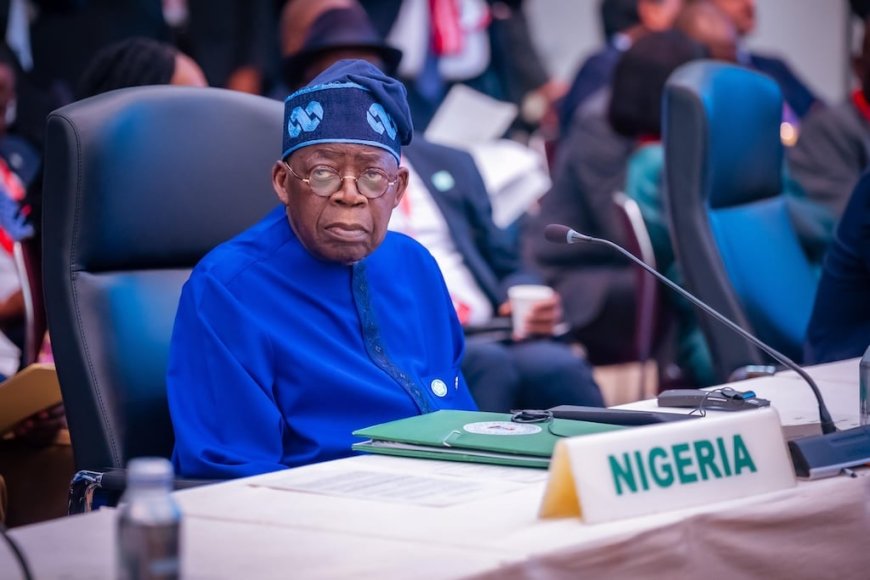Presidency lists 12 gains of Tinubu’s economic reforms

The Presidency has outlined what it described as significant progress in Nigeria’s economy following reforms introduced under President Bola Tinubu.
Special Adviser to the President on Media and Public Communication, Sunday Dare, in a post on his official X handle on Thursday, said the country’s economy, which was at a “breaking point” before Tinubu assumed office, is now recording measurable progress.
He explained that the reforms have touched critical areas, including trade, foreign reserves, taxation, debt service, fuel subsidy removal, budget deficit, and public financial management.
He wrote, “Before May 2023, Nigeria was consistently running a trade deficit, importing far more than it exported, with a negative balance of payment that drained the economy. Today, the tide has shifted: through reforms, Nigeria now records a trade surplus, easing pressure on external accounts.
In the past, Nigeria operated multiple exchange rate windows, creating distortions and a wide gap between official and parallel markets. With reforms, the exchange rate has been unified, narrowing the gap and reducing uncertainty.”
The presidential aide also pointed to “improvements” in the nation’s foreign reserves, government revenue and debt servicing.
“By early 2023, unmet FX demand stood at $7 billion while net reserves had fallen below $4 billion, leaving Nigeria dangerously exposed. Reforms have since cleared FX forwards, rebuilt reserves to over $23 billion, and restored confidence by allowing FX access even on naira cards.”
Nigeria’s tax-to-GDP ratio was stuck below 10 per cent, while 97 per cent of government revenue was consumed by debt servicing — a near-bankruptcy situation. Today, reforms have lifted the tax-to-GDP ratio above 15 per cent, while debt service has fallen below 50 per cent of revenue.”
He further stressed that the removal of fuel subsidy was a turning point, saying, “Subsidies on fuel were not only wasteful but unsustainable, draining resources while still leaving Nigerians with fuel scarcity and negative FAAC inflows. With reforms, the subsidy has been eliminated, freeing funds for critical investments, while fuel supply is now guaranteed and states receive positive FAAC allocations.”
On the budget, Dare noted, “Previously, Nigeria’s budget was dominated by high deficits and low capital expenditure. Reforms have reversed this trend: the deficit is now declining, while infrastructure spending is expanding.”
He also highlighted improved fiscal discipline: “By May 2023, Ways and Means borrowing from the Central Bank had exceeded ₦30 trillion, undermining fiscal stability. The reform process has curtailed this practice, with a gradual draw-down and tighter fiscal discipline.”
On the oil and gas sector, Dare remarked, “Nigeria’s oil and gas sector was in decline, with output falling steadily under theft, sabotage, and mismanagement. Reforms and renewed security have now lifted production, restoring Nigeria’s most important revenue stream.”
Addressing the investment climate, he said, “The pre-reform policy environment was inconsistent, opaque, and unfriendly to markets, scaring away investors. Reforms have since created a more predictable climate, encouraging capital inflows and even earning sovereign rating upgrades.”
On inflation, the presidential aide explained, “Inflation was rising steeply before reforms, and interest rates were climbing in response, choking businesses. Today, while inflation remains high, it has started to moderate, and interest rates are stabilising.”
Speaking on poverty and job creation, he said, “Rising poverty and shrinking job opportunities defined Nigeria’s reality before reforms. Today, while poverty remains high, reforms are creating deliberate pathways to reverse this trend — from infrastructure investments to policies that open up opportunities for decent work.”
On fiscal management, Dare said Nigeria’s fiscal management was weak, uncoordinated, and riddled with inefficiencies before Tinubu came to power.
He stated that the “economic reforms have strengthened coordination, improved transparency, and made public financial management more disciplined.”
Dare claimed that without the reforms, Nigeria would have faced worsening deficits, collapsing reserves, hyperinflation, ballooning debt, and possible economic collapse.
Cupped from Punch.

 admin
admin 


